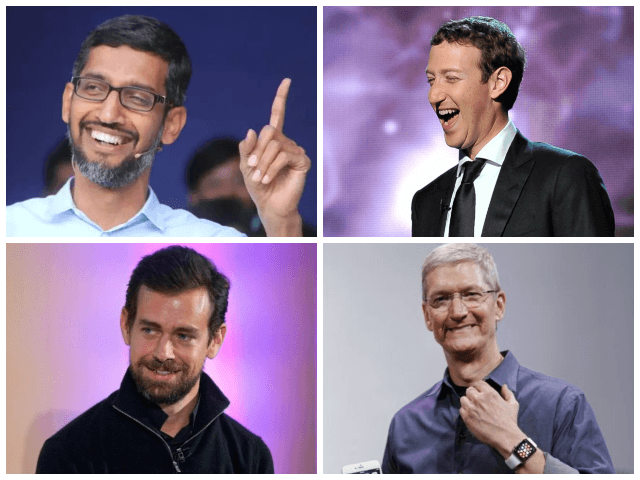2018 Is the Year Big Tech Censors Revealed Their T
Post# of 52083

[url=]< >[/url]

In virtually any given week in 2018, you could expect at least one of the following: the media would run a negative story about the president, a Democrat would complain about Russia, and a tech platform would censor a prominent conservative.
All three are connected. The alternative media, which the public now relies on to debunk the hysteria of the establishment press, has faced a sustained attack by the masters of the universe in Silicon Valley, who have either banned them from their platforms or undercut their traffic with algorithm changes. Meanwhile, the tech titans pour money into the corporate press, propping up the old media elites even as they crush their competition.
Democrats, still determined to cast the President’s election as illegitimate two years after the fact, still harp on about Russia, even as more evidence reveals how minuscule and meaningless Putin’s election “influence operation” really was. Google CEO Sundar Pichai recently told Congress that his company discovered just $4,700 in ad spending from Russia-linked accounts in 2016.
Breitbart TV
Japan to Resume Commercial Whale Hunting Next Year
[ClientLogo]
Those same Democrats ridicule conservative complaints of tech censorship as a conspiracy theory, even when leaks from the tech companies themselves prove that it’s happening. “The Good Censor,” an internal Google briefing leaked to me earlier this year admits point-blank that the tech giants “shifted towards censorship” after 2016. It seems Google’s own researchers disagree with the Democrats’ defense of the company. That’s to be expected — Google pays its researchers to tell it the truth. It pays Congressional Democrats for other reasons.
You don’t need leaks to discern Silicon Valley’s bias, though. You can just look at the tech platform’s actions. In the past year alone, we saw the following blacklistings, representing only the most prominent of those to feel Silicon Valley’s wrath.:
Over 800 alternative news accounts were banned by Facebook just a few weeks before the midterms
An untold number of rank and file conservatives, who do not have the pull to shame the platforms into reinstating their accounts, also were silenced.
The censorship wasn’t contained to just activists, the alternative media, and influencers. Even mainstream politicians felt the heat — Facebook and Google refused to carry campaign ads for Senate candidate Marsha Blackburn, echoing a similar decision by Twitter a year earlier. Facebook also temporarily blocked an anti-communist ad by Republican congressional candidate Elizabeth Heng. Most egregious of all — the social network blocked a midterm ad by President Donald Trump just days before the November elections.
Midway through the year, top Republicans including GOP chairwoman Ronna McDaniel and congressman Matt Gaetz also discovered that their account had been suppressed in Twitter’s search results. Axios reporter Jonathan Swan admitted that the revelation made him “rethink” his previously-held belief that tech censorship was just a “conspiracy theory.”
After 2018’s tidal wave of censorship, can anyone still believe that?
 (0)
(0) (0)
(0)